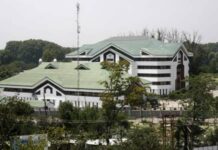Zamir Ahmad
Our state, and more particularly, the Kashmir valley has certain locational disadvantages that impede the pace of our developmental works considerably. The harsh winters, the land locked provinces, the hilly terrain of our many districts are some of the factors that seriously slow down economic activity in our land as compared to that in less unfortunate lands. Not that these impediments could not have been overcome. These could, in fact, have been turned into advantages and enablers for growth. Is it not it a fact that a major part of United States and almost all of Europe have the same climatic conditions as of ours. Had our planners used a little bit of ingenuity, and instead of importing and senselessly implementing plans and policies from the mainland, remodeled the plans on our own risk-reward matrix, the results would have been drastically different.
No surprise then that the State’s Capital and the Ancient Historical city of Srinagar last year received the inglorious epithet of being the ‘filthiest of all state capitals’. No wonder then that the our pock-marked roads, the unfinished drains, the gross traffic mismanagement, the non-scientific and callous waste disposal system and absence of aesthetic taste in our government and commercial infrastructure make our land the ugliest of all places as well. The ‘Venice of Asia’ dream dies in our eyes every time when we step out of our homes. The “Switzerland of Asia’ aspirations take a hasty retreat into the oblivions of our consciousness whenever we see apathy and indifference of the powers that be successfully competing with nature’s bounties having so graciously been bestowed upon us.
Asking the state government to rethink its development policies and strategies and make them adaptable to local geo-climatic conditions would be akin to asking for the moon. There seems to be no scope for creative thinking in the present day government ranks. This was not the case earlier. In the sixties and seventies, we used to do a lot of things on our own.
We, for instance, used to have our own school text books replete with instances, stories and anecdotes from our history and cultural background. We used to design the Brand Identities of our local corporations; our Radio and Television stations had their distinct regional feel and aura and our rich cultural background was reflected in whatever we did or conceived of. No wonder then, the quality of work that was produced those days in all realms of life was exquisite and extraordinary. So were the personalities of those times that left indelible impressions on our society through their work in different professions. The ‘sanskritisation’ of our state – and of course of our senses – started in the mid eighties, has only robbed us of our intellect, originality, individuality and ingenuity.
The results are there for all to see. The disharmony has now become brazenly conspicuous. Shortsightedness among the government functionaries is so common place that futuristic thinking is looked down upon as being paranoid. There is no will to improvise; not even to involve oneself in one’s work. Over the decades we have slowly lost self-sufficiency in almost everything. The evident short-cut of importing everything from outside has taken a less evident toll on our cogitative faculties. We are now complacent in importing ideas from alien lands without giving a thought to their application in local settings.
It is useless to expect that the state will start a rethink on its own. It is also futile to surmise that the public servants will of their own act in the interests of the public. Waiting for the ‘Godot’ is no alternative. The responsibility of conscious citizens doubles in this grim scenario. We need not be told what is to be done; we all know that. What is required is a sense of responsibility, devotion to one’s land, dedication to one’s work and determination to make a change; howsoever small it may be.















